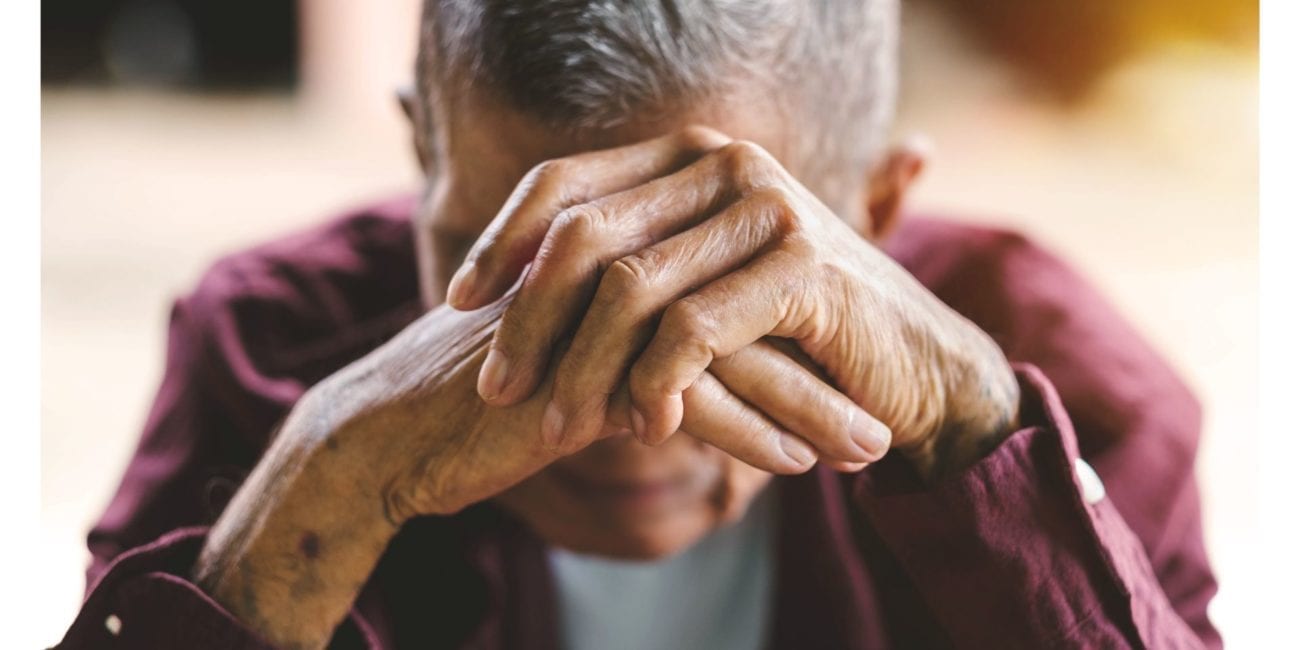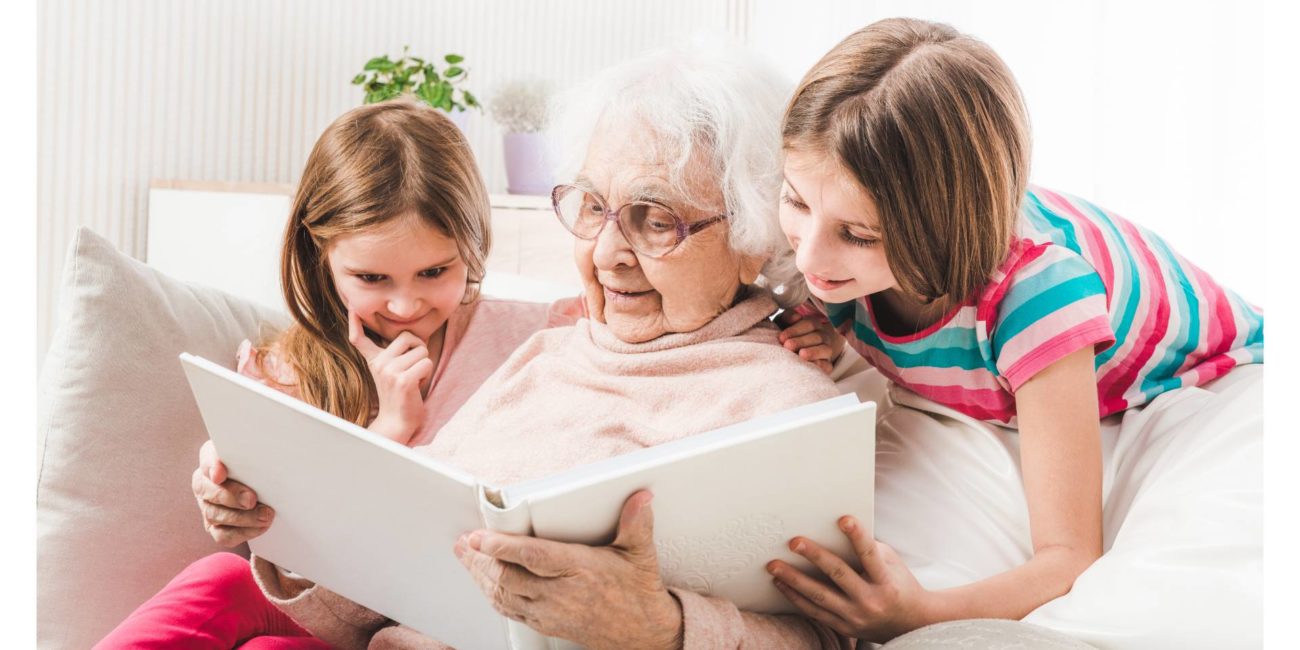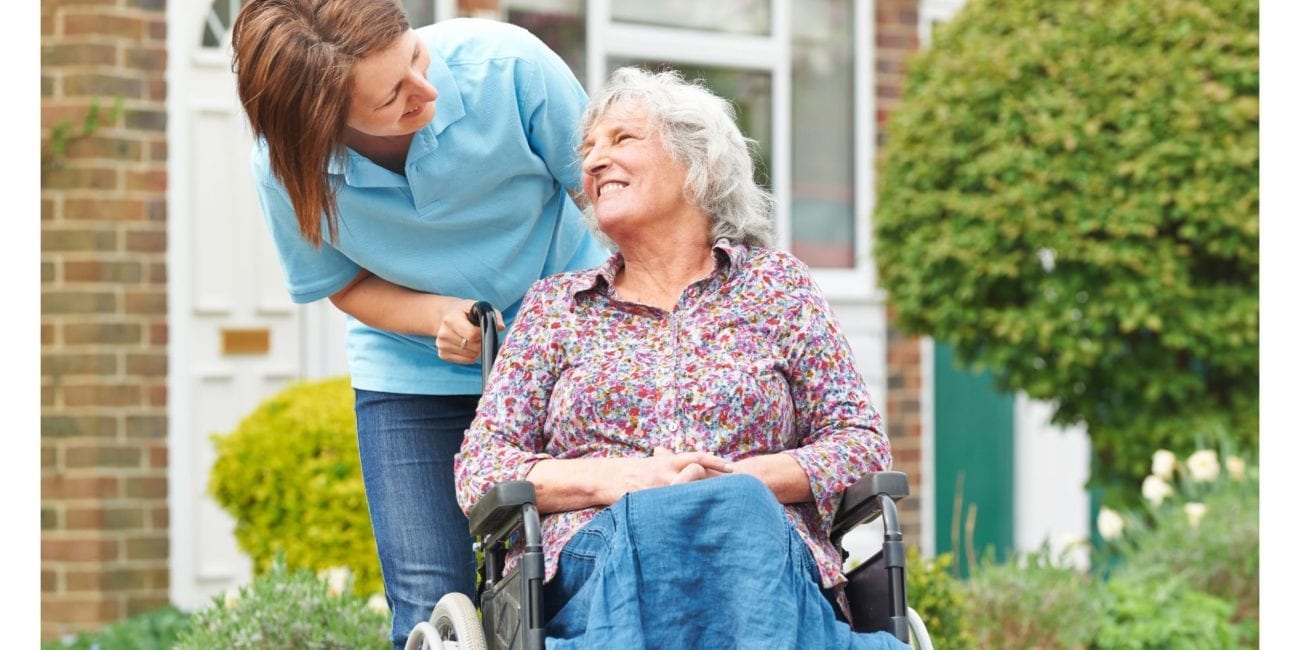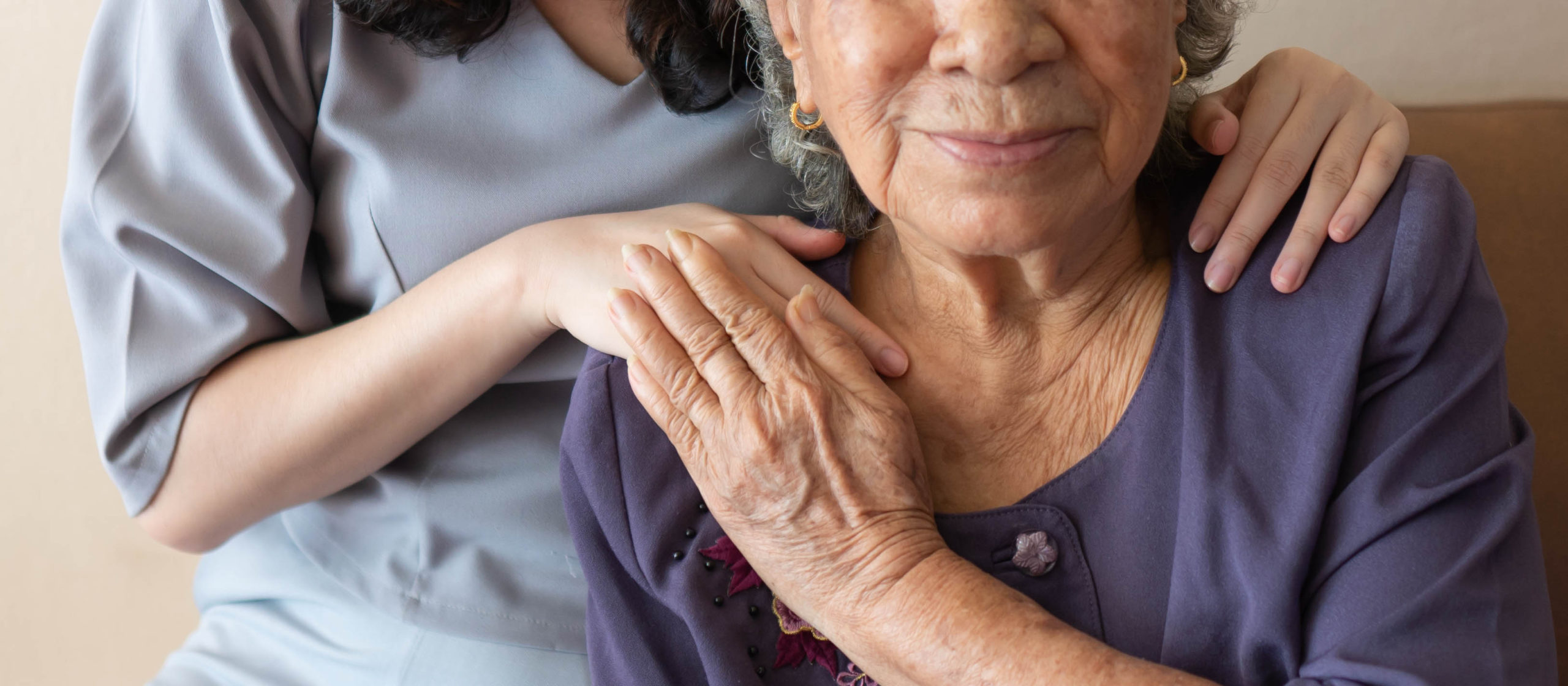Losing a parent at any age can feel impossibly difficult. It can feel even more challenging when we are the primary caregiver for our loved one. Perhaps you feel the pressure to support them in their final days while still trying to cope yourself. While there is no easy way to walk through this there are a few things you can do to make preparing for the loss of a loved one easier.

Ways to Support And Care for a Loved One
As a caregiver, we undoubtedly have been through many seasons of life with our loved one but this one likely feels entirely new and scary. It can be intimidating to support a parent in their final days. Some people benefit from professional guidance and support in this process. Truthfully, there is no perfect way to help a parent pass. However, there are a few ways we can try to alleviate the negatives and focus on the positives.
Be Ready To Listen
Maybe a loved one wants to talk a lot, or maybe they’re not prepared to process. Either way, be ready to listen with an open heart. We should try our best not to have an agenda in these conversations. Instead, focus on hearing them out, listening empathetically, and letting them externalize their feelings.
Pick Up on Cues
This can be tricky but try to see if a loved one subtly expresses something that could make them more comfortable. Are they hinting at wanting to talk about their faith and waiting for us to ask the question? Is the messiness of the room bothering them, but they’re too embarrassed to ask for it to be cleaned? Anticipating their needs and wants (as much as you can) could alleviate some pressure on our loved ones.
Encourage Them
When it’s appropriate, offer them as much encouragement as possible. It doesn’t mean you want them to die if you give them the grace to thank them for being with you but let them know that you will be ok if they pass. Encouragement could mean making sure they know how much they matter to people and how impactful their life is. Focus on all the positive things they have brought and how their life will still matter to the world.
Environment Matters
Often, in the final days, spaces look different. Rooms can be overly medical, have lots of random people in them, etc. Some of this is unavoidable. However, as much as you can, try to make our parent’s space feel as homely as possible, even if they are not at home. Consider bringing in some of their favorite small items from home. Or encourage visitors to carry themselves as if they were in a home instead of a medical facility. Clean up supplies as much as is medically allowed and safe.

What Is Anticipatory Grief?
When we hear the word “grief,” we usually think of it as the process that happens after a painful event or loss. However, grief does not always come after an event. In fact, sometimes, we begin experiencing grief before the difficult event officially occurs, while preparing for the loss of a loved one or similar situations. This is referred to as “anticipatory grief.”
This type of grief is common when caring for an aging parent. Sometimes, we know a loved one’s deteriorating health, and we know what to expect next. If this is happening to you, you may be experiencing anticipatory grief.
It is essential to distinguish this type of grief from the grief that happens after a death or loss. While they both are painful and important to acknowledge, they can feel like totally different experiences.
Part of what makes this type of grief unique is that many caregivers find themselves in a state of grief while still actively supporting their loved ones in their final days. It can put our bodies in a state of alertness. We may feel the usual feelings of grief (sadness, anger, etc.) while still in this heightened state (body ready for a phone call, panic over leaving the hospital to get food, etc.).
With any form of grief, there is no right or wrong way to grieve and understanding what is happening in our minds and bodies can be helpful. This complicated mix of feelings, emotions, and physical reactions we experience is normal.

Ways to Support & Care for Ourselves
While much of our time may be focused on our dying loved ones, we need to care for ourselves even while preparing for the loss of a loved one. There are many different forms of self care that other caretakers have found useful in this situation. One of the most common is setting intentions before seeing loved ones, allowing you to develop focus and make the most of the time you have together.
Give Space for Experience
When a loved one is in the final stage of their life, we want to focus our energy and care on them. We want to create room for them to talk about their fears, their needs, and more. This is a natural and loving response but that doesn’t mean there isn’t room for our experience as well. It is healthy for us to have space for our own needs as we navigate this season with our parents. Find a place to cry, get mad, or engage in a chosen spiritual practice. Some individuals practice different forms of self-care like meditating or yoga as a way to quiet their minds. Maybe find another person to talk out feelings and worries, just like we are doing for our loved ones.

Finding A Network and Using It
And as our parent becomes our highest priority, we may not be able to juggle our everyday life like we used to. Maybe we are spending more time with our loved ones, unable to leave the hospital. Or perhaps we emotionally are spent, so dealing with fighting kids at home is too much. The reality is, as we give our best self to our loved ones in this time, someone else may need to step in and fill in some gaps. That is ok, so say yes to offers of help.
First, identify and connect with a support network. Maybe it is family, friends, a spiritual community, or a combination. Get in connection with this network and share with them what is happening. Consider sharing personal feelings and thoughts so that you are not holding in all your emotions.
Next, communicate with this network. This can feel like a vulnerable process, but it can offer so much support. Share with this network your needs—emotional and practical needs. When we feel overwhelmed and need someone else to prep dinner for the family, it is ok for us to ask for it.
If we are feeling exceptionally sad and scared, ask for support. It can feel awkward to ask for help, especially if you have gotten used to managing so much alone as a caregiver. However, the more support we accept in this time, the more we can show up well for our loved ones.

Use Time for Reflection and Positivity
Finally, as hard as it may seem, try to focus on the time you do have left with a loved one and how to use that time positively. Consider ways that the family can have a meaningful connection in these final days and focus on making space for those moments. For some families, that may be sharing favorite memories and stories with a parent, even if we just share them out loud for them to hear. For others, it is simply through touch and holding their hand as much as they can.
Ask your network to support you in this and let them fill practical needs so that you have more space for this quality time with your loved one.

Support for A Trying Time
Grief and loss are complicated experiences, and it is normal to feel overwhelmed by them, but remember that each journey is different and your experiences may not be the same as everyone else’s and that’s completely okay. There are many different forms of self care, and finding something that works for you is an important part of this process. There are also groups where others who have been in similar situations provide advice and support for one another.




Leave a Reply